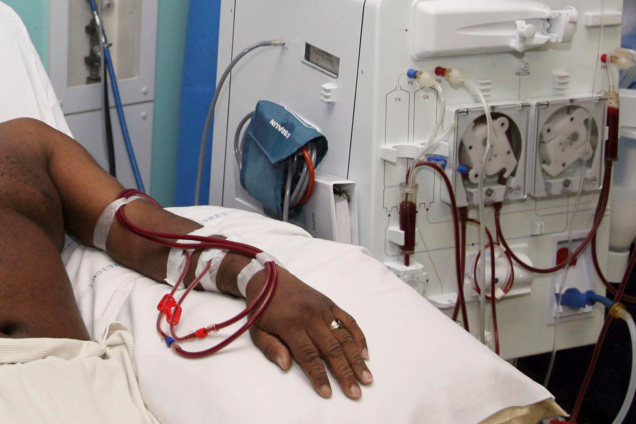A fellow at the Centre for Democratic Development (CDD), Kwame Sarpong Aseidu has added his voice to the countless calls for the renal outpatient department of the Korle Bu Teaching Hospital (KBTH) to be reopened to prevent the loss of more lives.
According to him, the continuous delay in reopening the centre to the public raises concern about the quality of leadership in the country.
“It’s becoming painful and exhausting listening to the patients talk. I cannot only help but ask myself do we have leaders in this country and I say that without missing words,” he said on Newsnight on Joy FM.
Today, November 6, marks day five since the Health Ministry directed the management of KBTH to reopen the dialysis centre. This makes it five months and sixteen days since the centre closed down over a GHs4 million debt.
On the back of this, the CDD fellow explained that the renal centre might still be closed even after countless directives from various sector heads because they had failed to include the needed resources to ensure the reopening.
“The Presidential Advisor on Health has spoken on the matter, nothing has happened. The Minister of the Ministry of Finance has spoken, but nothing has happened. The Minister of Health has spoken nothing has happened. So who is going to speak for something to happen?” he quizzed.
He continued “And for me, the reason why they have all spoken and nothing has happened is because they have spoken without backing it with what is required, which is the finances and having a bigger conversation about how to get the unit to run without making losses.”
Again, he stressed that unless there is a stakeholder engagement on what can be done to maintain the centre, there might be a recurring incident even after this is resolved.
Mr Aseidu expressed his disappointment with the delay adding that the country and the leadership were letting some citizens down.
He added that even in advanced countries citizens don’t pay for dialysis from their pocket, hence the state expecting the renal patients to seek medical attention in private facilities was equivalent to them “signing a death warrant” since most people cannot afford it.
ALSO READ:

